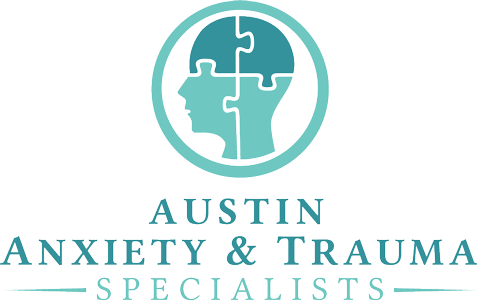Imagine finding a space where you are understood, supported, and guided toward healing—without ever having to leave your home. This is the promise of virtual therapy, a form of mental health care that has transformed how we approach therapy access. The digital age brings therapy to our doorsteps, but the journey to find the right therapist online can feel overwhelming. How do you choose someone to trust with your deepest thoughts and feelings? This guide is crafted to demystify the process with the insights and tools needed to find a virtual therapist who can truly make a difference in your life.
Reflect on your own needs and goals
Before diving deep into the therapist selection process, taking some time to reflect on your own needs and goals for therapy can be incredibly helpful. Ask yourself what prompted the search for a therapist at this time. Are you looking for support with a specific issue, such as anxiety, depression, or trauma, or are you seeking general guidance and a space for self-exploration? Understanding your own motivations and what you hope to achieve through therapy can guide you towards therapists who are best equipped to meet those needs.
Even if you feel generally “okay,” therapy can still be a valuable space for personal growth, learning coping strategies, and preventive mental health care. Acknowledging your own needs and goals not only helps in finding a therapist who is a good fit but also sets the foundation for a productive therapeutic relationship.
Read: Exploring the Effectiveness of In-Person vs. Online Therapy
Know the types of mental health professional
When you start looking for a virtual therapist, you’ll quickly come across various types of professionals, each with their own set of credentials that signify how they can help you, their focus, and scope. Here’s a straightforward guide to make sense of these titles that focuses on what they mean for you:
- Mental health disorders (anxiety, depression, PTSD, etc.): Seek a Licensed Professional Counselor (LPC), Licensed Clinical Social Worker (LCSW), or a Psychologist (Ph.D. or Psy.D.). These professionals are trained in dealing with a broad range of mental health issues.
- Medication management: If you suspect your treatment may require medication and would like to focus on that, a Psychiatrist (MD or DO) is necessary, as they are the only mental health professionals licensed to prescribe medication.
- Family or relationship issues: For challenges specifically related to marriage, family dynamics, or relationships, a Marriage and Family Therapist (MFT) specializes in these areas, though an LPC or LCSW can also help with these concerns.
- Behavioral challenges or life coaching: If you’re looking for support in specific behavioral change, life transitions, or coaching, a Licensed Professional Counselor (LPC) can help.
Understand types of treatments offered
Knowing the types of treatments therapists offer can give you insight into how they approach healing and whether it aligns with what you’re seeking. While you don’t need to decide on a specific treatment method before meeting with a therapist, being informed about the options can help you find a therapist whose expertise matches your needs. Here’s a quick overview of some common, proven therapeutic treatments that your future therapist might specialize in:
- Cognitive Behavioral Therapy (CBT): Often used for anxiety and depression, CBT helps identify and change negative thought patterns and behaviors.
- Eye Movement Desensitization and Reprocessing (EMDR): Effective for trauma recovery, EMDR facilitates the processing of traumatic memories to reduce their lingering effects.
- Accelerated EMDR: An intensive version of EMDR, some practices offer this specialized treatment for faster processing of traumatic experiences.
- Exposure and Response Prevention (ERP): Targeted at OCD and phobias, ERP involves exposure to fear triggers and learning to resist the urge to perform compulsive behaviors.
- Solution-Focused Brief Therapy (SFBT): This approach emphasizes solving current problems and achieving goals quickly, focusing on the future rather than past issues.
- Mindfulness-Based Therapies: These therapies incorporate mindfulness practices to improve mental well-being, helping with stress, anxiety, and depression.
- Rational Emotive Behavior Therapy (REBT): REBT helps identify irrational beliefs and negative thought patterns, encouraging a healthier, more rational way of thinking.
Read: EMDR Therapy in 8 Phases (Take a seat, PTSD)
Inquire about cost and insurance
One practical aspect of choosing a therapist involves understanding the financial commitment. It’s important to inquire about a therapist’s acceptance of insurance and get clarity on the cost of therapy sessions. Many therapists offer detailed information on their websites about insurance networks they belong to. For example, Austin Anxiety and Trauma Specialists accept Blue Cross Blue Shield, United Healthcare, and Aetna & Cigna Insurance.
Fees can often be discussed by contacting the practice directly, or may be posted on the site. If insurance coverage is a priority for you, verifying this information early in your search can save time and help narrow down your options to those that fit your budget and financial circumstances.
Read: How can Cognitive Behavioral Therapy (CBT) help Depression?
What to look for in a therapist’s bio
Finding a therapist whose professional expertise aligns with your needs is essential, but equally important is the personal connection you feel with them. This “vibe check” is about getting a sense of their personality, therapeutic approach, and whether their values resonate with yours. Many therapists provide detailed bios on their practice websites or professional profiles, where you can assess:
- Their specialties and treatments
- Insights into their background and experience
- Their philosophy towards healing and support
- Their communication style and understanding of the issues that matter to you
- Whether their therapeutic methods and areas of focus align with what you’re seeking
Read: Is Obsessive-Compulsive Disorder (OCD) Treatable?
How to assess your first session
The first session with a new therapist is an opportunity for both of you to assess the fit. It’s normal to feel a bit nervous or uncertain, but this initial meeting can provide significant insights into how comfortable you feel with the therapist and the potential for a strong, therapeutic relationship. After your first session, ask yourself these questions:
- Did I feel safe to express myself without judgment?
- Did I feel heard and understood?
- How did I feel about their feedback and questions?
- Did the therapist discuss their approach to helping with my concerns?
- Can I see myself building a trusting relationship with this therapist?
This first interaction can be a powerful indicator of how you might work together moving forward. However, it’s not uncommon to start with one professional and realize you might need to switch to another based on your evolving understanding of your needs or how your therapy progresses. The most important thing is to find someone you feel comfortable with and who has the appropriate expertise to address your concerns.
Start your search for virtual therapy in Texas
Finding the right virtual therapist can often feel overwhelming, but it’s also an empowering step towards your personal growth and healing. At Austin Anxiety and Trauma Specialists, we believe in making this process as seamless and supportive as possible. We want you to find a therapist who not only meets your professional needs but also resonates with you on a personal level—even if that means helping you look outside our own practice.
We invite you to explore our team of dedicated professionals, each committed to fostering a therapeutic environment that nurtures healing and growth. Discover your ideal virtual therapy partner by browsing our therapist bio page, and begin your journey towards a more fulfilled and peaceful life.
Need help finding the perfect fit? Contact us today and we’ll match you to a professional who can best fit your needs.







